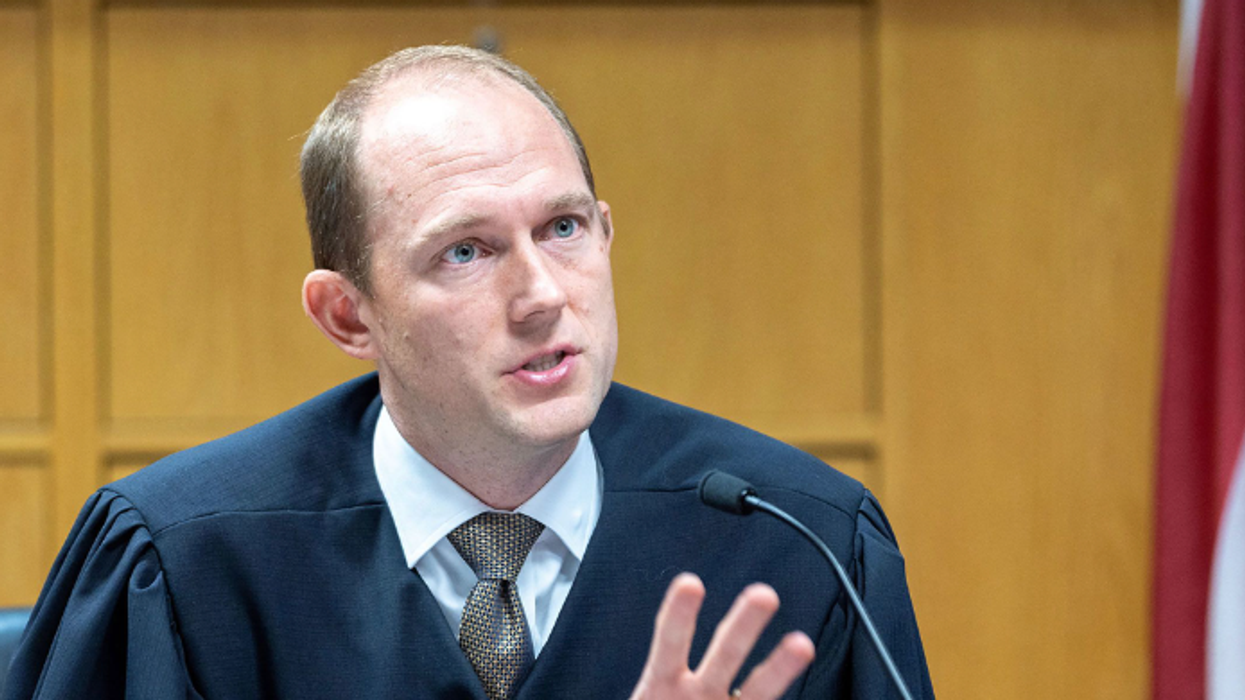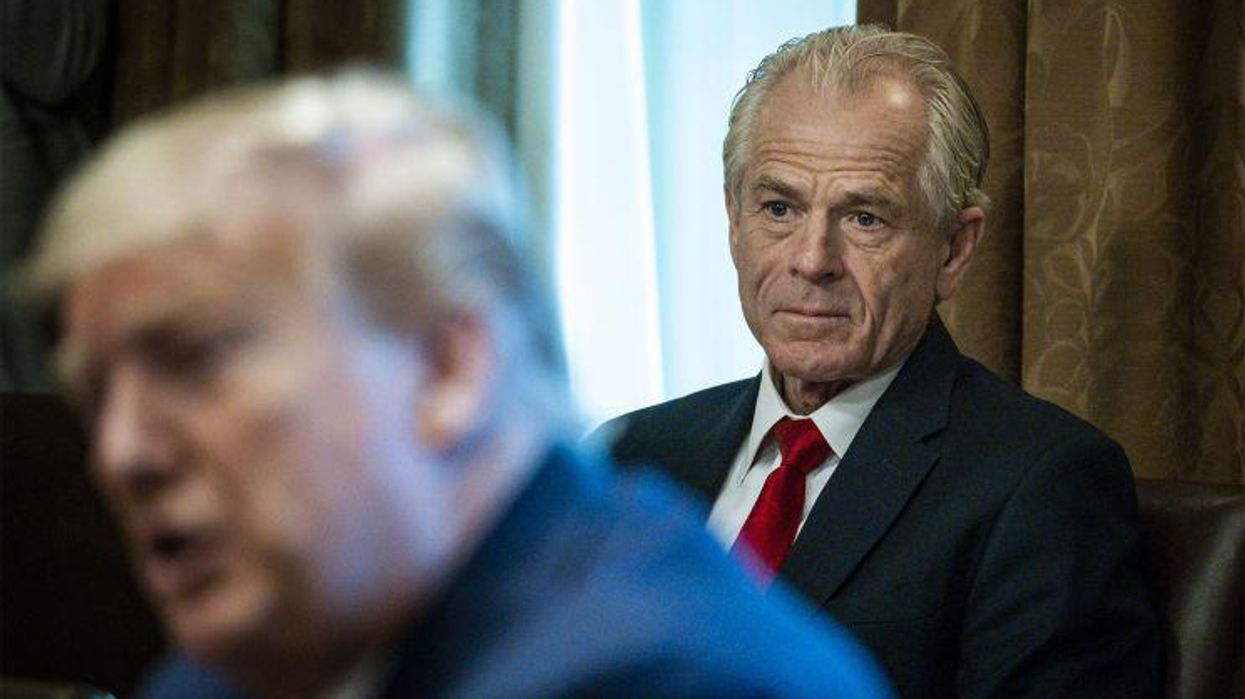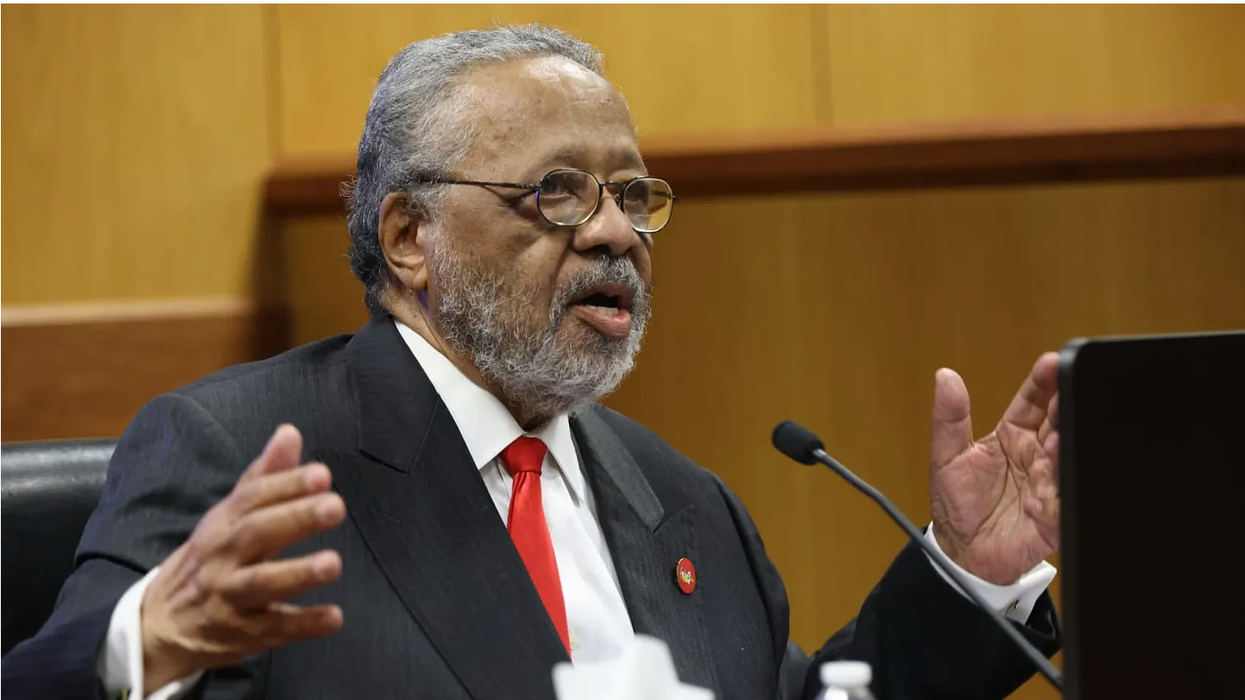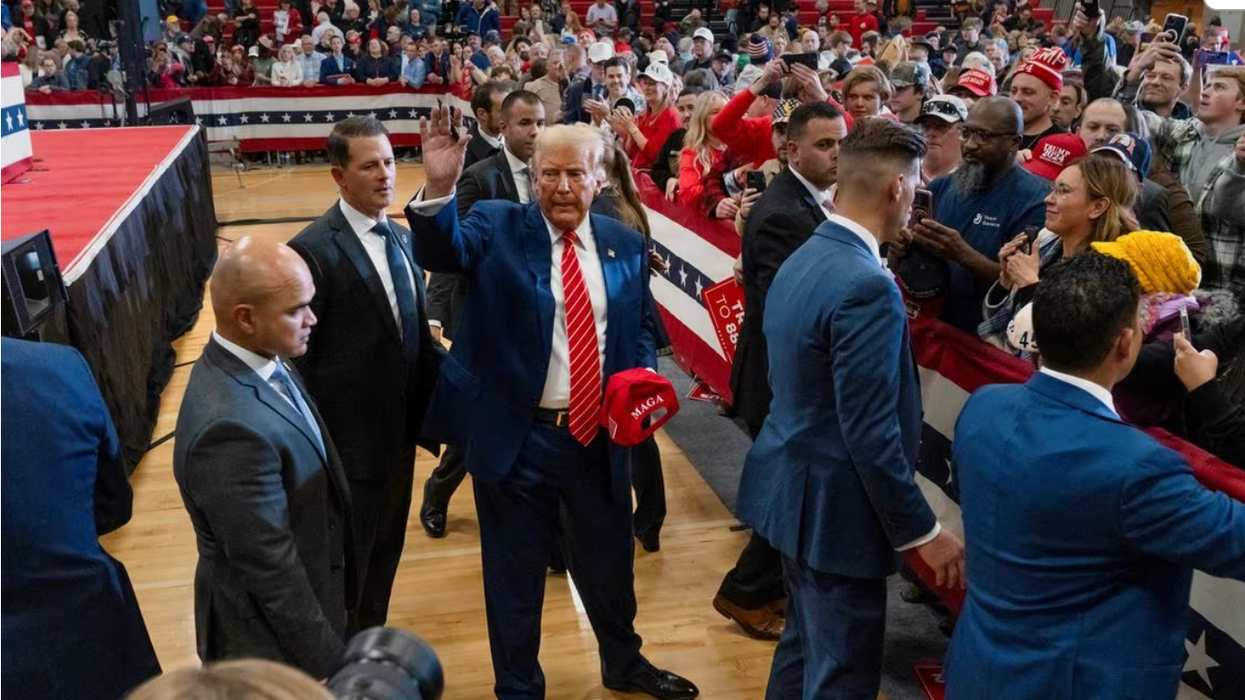Georgia Judge: Trump Did It, But That's OK Because Oaths Don't Really Matter
As if we had not been reminded before, the dismissal of six charges against defendants in the Georgia RICO case reminds us once again that the whole notion of taking an oath to support and defend the Constitution, including state constitutions, has apparently become a nullity in modern times. According to the judge in Georgia, if you’re required to take an oath, it’s just a ceremony, not an actual requirement to uphold the law – the law being the Constitution of the United States or the Constitution of Georgia.
Defendants in the Georgia racketeering case, who include Donald Trump, Rudy Giuliani, and Mark Meadows among others, were charged with 41 counts of violating Georgia’s law in that they “knowingly and willfully joined a conspiracy to unlawfully change the outcome of the election in favor of Donald Trump.” The judge in the case, Scott McAfee of Fulton Superior Court, has now dismissed six of those counts, not because the defendants didn’t take the actions they are charged with, but because those actions were not illegal enough. The judge found that the charges filed by the grand jury in Georgia did not spell out with adequate specificity why those actions were illegal.
All six charges relate to actions taken by the defendants to “solicit” various Georgia officials to violate their oaths of office. For example, Trump and Meadows called Georgia Secretary of State Brad Raffensperger and solicited him to “unlawfully influence the certified election returns.” Multiple defendants “solicited elected members of the Georgia Senate to violate their oaths of office on December 30, 2020, by requesting or importuning them to unlawfully appoint presidential electors.” Giuliani solicited members of the Georgia House of Representatives by “requesting or importuning them to unlawfully appoint presidential electors.”
You will note in the quotes from the indictment that the word “unlawfully” appears in each count of the indictment the judge dismissed. He’s not saying that what the defendants asked the Georgia officials to do was lawful, therefore the charges must be dismissed. No, he’s figured out a clever way around that. The judge is saying the charges must be dismissed because they don’t spell out how the illegal acts they were being asked to commit violated their oaths.
The law in Georgia prohibits any public officer from “willfully and intentionally violating the terms of his or her oath as prescribed by law.” The judge is saying that all the Georgia officials took their oaths of office, but Fani Willis’ grand jury has failed to spell out how what they were being asked to do violated those oaths. To illustrate the problem, as he sees it, the judge even favorably cites a case in Georgia where a conviction of a police officer was reversed “when a police officer’s oath did not expressly include a provision to uphold state law.” In another case, charges were dismissed in a drug possession case because the specific drug and its quantity were not specified.
Got that? In Georgia, you can swear to defend and protect the state Constitution, but that oath, at least in the case of the police officer in question, does not require you to “uphold state law.”
That this would utterly negate the whole idea of taking an oath doesn’t seem to have occurred to Judge McAfee, but moving on…
To sum up as briefly and bluntly as I can, the charges against Trump and the rest of them have been dismissed because the indictment against them does not spell out precisely how “unlawfully” doing something like appointing fake electors or “finding” enough votes for Trump to overturn the election violates the oaths of the Georgia officials being asked to commit those acts, even though the acts themselves are, as per the judge’s order dismissing the indictments, “unlawful.”
The judge took pains to point out that the United States Constitution “contains hundreds of clauses, any one of which can be the subject of a lifetime’s study,” so his message to Fani Willis is, get studying. If you want a new charge against Trump and his pals to stick, you’re going to have to find a clause they urged a Georgia official to violate.
The Supreme Court has been up to the same sort of thing in the series of decisions it has handed down eviscerating laws against the bribery of public officials. Their theory is that bribery hasn’t taken place, and thus the law hasn’t been broken, unless the person soliciting the public official to favor their interests by giving them a bribe spelled out in complete sentences what it is they want the official to do. For example, if a gangster is buying off a judge to find someone not guilty, it’s not enough for you to be the brother of the defendant and sit down with the judge and hand him money across the table. You’ve got to open your mouth and say the words: here’s some money to let my brother off.
This is the kind of double-reverse triple-salchow legal squiggling Donald Trump wants to use to beat the charges against him in Georgia. He’s not saying that he didn’t do it. He did. He’s not saying that what he did wasn't illegal. It was. He’s saying that it didn’t amount to causing others to violate their oaths in the exact same manner he was violating his.
Lucian K. Truscott IV, a graduate of West Point, has had a 50-year career as a journalist, novelist, and screenwriter. He has covered Watergate, the Stonewall riots, and wars in Lebanon, Iraq, and Afghanistan. He is also the author of five bestselling novels. You can subscribe to his daily columns at luciantruscott.substack.com and follow him on Twitter @LucianKTruscott and on Facebook at Lucian K. Truscott IV.
Please consider subscribing to Lucian Truscott Newsletter, from which this is reprinted with permission.












